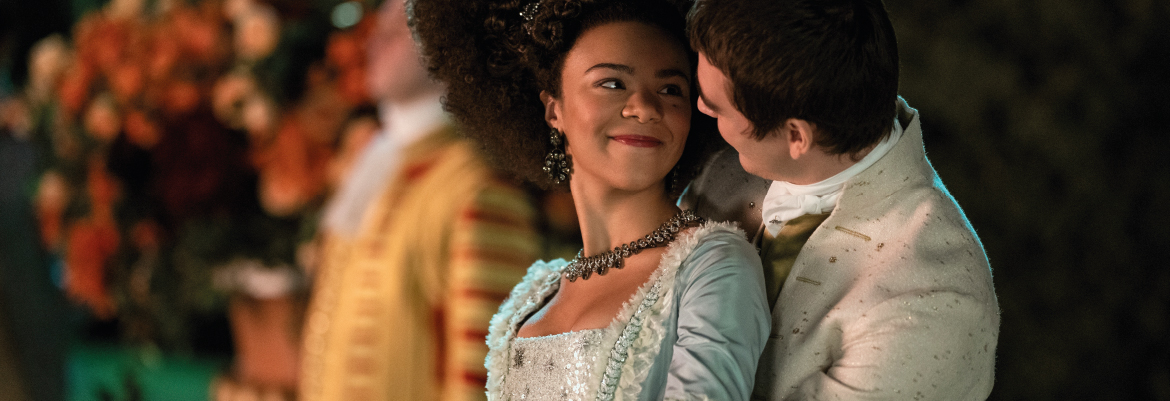The show has received rave reviews and made stars of its young cast including India Amartefio (Charlotte), Arsema Thomas (young lady Danbury) and newcomer Corey Mylchreest (George). Audiences have been captivated, not only by the characters, but the story they tell of two young people falling in love following an arranged marriage who seek to honour the commitment they have made to one another despite the challenges of life.
As their story evolves over six episodes, Queen Charlotte handles two things particularly well (here come a few spoilers): mental health, and love amid suffering and scrutiny.
There is still so much stigma and ignorance surrounding mental ill health in today's world, even in the UK. How much more so in the early nineteenth century before the advent of modern psychiatry. We see George not only hiding his condition from his wife, wanting to protect her from himself, but also turning to a seemingly cruel and sadistic 'quack' in the hopes of getting better and even finding a cure. It was shocking to watch and an uncomfortable reminder not only of how things were, but of how much we still need to do as a society and healthcare profession about awareness and engagement with mental health and wellbeing.
On the flipside, it is heart-warming to see that, despite George's difficulties, Charlotte 'stands by her man'. When she uncovers all that he has been hiding regarding his mental health, she is filled with compassion and shows her deep love for him by protecting, supporting, and advocating for him. They often find comfort and solace in grounding themselves in the simple and ordinary despite their very public and ostentatious lives. Love and suffering appear also in the parallel stories of Lady Danbury and Lady Bridgerton.
As I reflected on why the series impacted many and was so well received, I wondered if it taps into some of our deepest desires as human beings; to be seen, accepted, and loved unconditionally. The world is often telling us that we will find answers to these desires in another person or relationship, but as Christians we know that ultimately the satisfaction of our deepest desires comes only through the person and work of Jesus; the unshakeable and unchanging one who is with us in our sufferings; the one who loves us so much that he suffered immeasurably so that we could have life and have it in its fullness.
Rachel Owusu-Ankomah is CMF Head of Student Ministries































